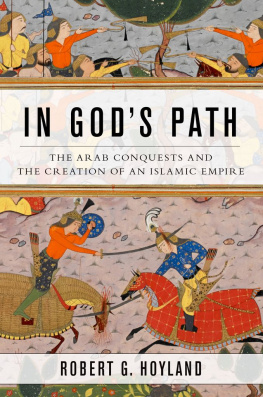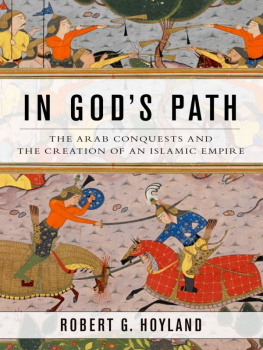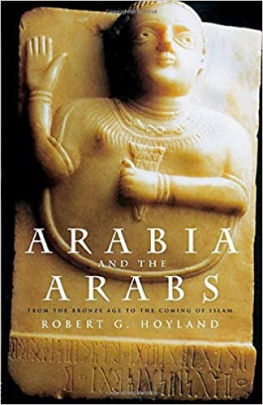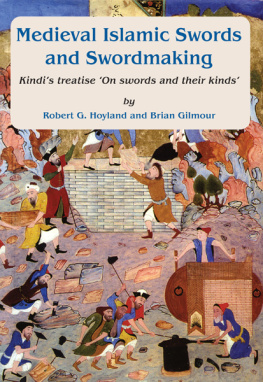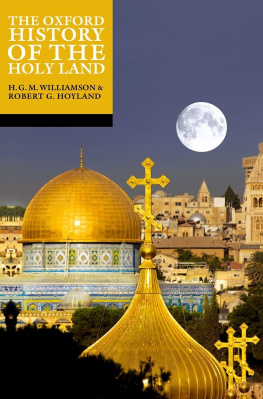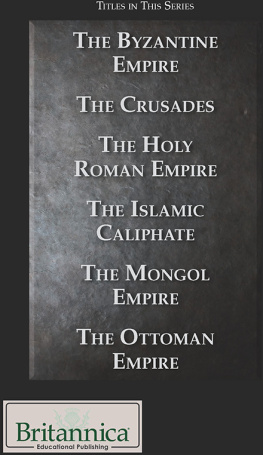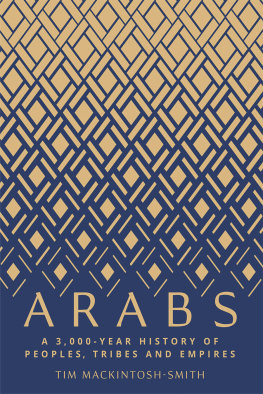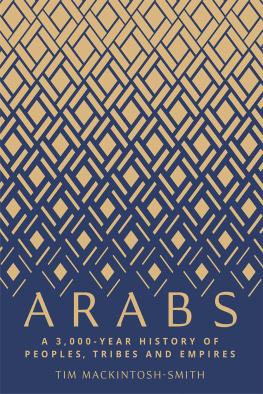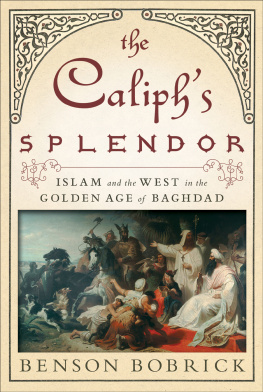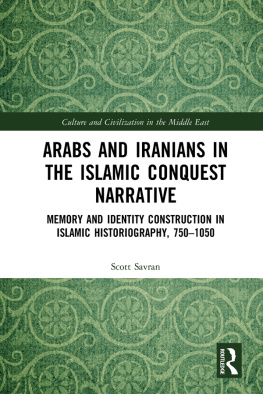IN GOD'S PATH
Ancient Warfare and Civilization
SERIES EDITORS
RICHARD ALSTON ROBIN WATERFIELD
In this series, leading historians offer compelling new narratives of the armed conflicts that shaped and reshaped the classical world, from the wars of Archaic Greece to the fall of the Roman Empire and the Arab conquests.
Dividing the Spoils: The War for Alexander the Greats Empire
Robin Waterfield
By the Spear: Philip II, Alexander the Great, and the Rise and Fall of the Macedonian Empire
Ian Worthington
Taken at the Flood: The Roman Conquest of Greece
Robin Waterfield
In Gods Path: The Arab Conquests and the Creation of an Islamic Empire
Robert G. Hoyland

Oxford University Press is a department of the University of Oxford.
It furthers the Universitys objective of excellence in research, scholarship, and education by publishing worldwide.
Oxford New York
Auckland Cape Town Dar es Salaam Hong Kong Karachi
Kuala Lumpur Madrid Melbourne Mexico City Nairobi
New Delhi Shanghai Taipei Toronto
With offices in
Argentina Austria Brazil Chile Czech Republic France Greece
Guatemala Hungary Italy Japan Poland Portugal Singapore
South Korea Switzerland Thailand Turkey Ukraine Vietnam
Oxford is a registered trademark of Oxford University Press in the UK and certain other countries.
Published in the United States of America by
Oxford University Press
198 Madison Avenue, New York, NY 10016
Oxford University Press 2015
All rights reserved. No part of this publication may be reproduced, stored in a retrieval system, or transmitted, in any form or by any means, without the prior permission in writing of Oxford University Press, or as expressly permitted by law, by license, or under terms agreed with the appropriate reproduction rights organization. Inquiries concerning reproduction outside the scope of the above should be sent to the Rights Department, Oxford University Press, at the address above.
You must not circulate this work in any other form and you must impose this same condition on any acquirer.
Library of Congress Cataloging-in-Publication Data
Hoyland, Robert G., 1966-In Gods path : the Arab conquests and the creation of an Islamic empire / Robert Hoyland.
pages cm. (Ancient warfare and civilization)
Includes bibliographical references.
ISBN 9780199916368 ISBN 9780199916375 1. Islamic EmpireHistory622661. 2. Islamic EmpireHistory661750. I. Title.
DS38.1.H688 2014
909.09767dc23
2013043047e
eISBN 9780190209650
To the great despair of historians men fail to change their vocabulary every time they change their customs
(Marc Bloch, The Historians Craft, trans. Peter Putman,
Manchester 1954, 28).
CONTENTS


I am indebted to two particular sources for the writing of this book. The first is the many students to whom I have taught Islamic history and who have helped me think about the shortcomings of the traditional narrative. The Oxford graduate intake of 201011 were particularly influential, for I was then fully engaged in writing this book and we discussed some of its aspects in our seminars, so thank you Anna, Benedict, Charlie, Hasnain, Josh, and Ryan. The second is my undergraduate teacher and doctoral supervisor, Patricia Crone, who first introduced me to Islamic history and encouraged me to think critically about its origins and formation. In addition, there are the many colleagues with whom I have had interesting discussions that have helped shaped some of the ideas presented in this book. Although there are too many to name them all here, I would particularly like to thank Aziz al-Azmeh, Amikam Elad, James Howard-Johnston, Hugh Kennedy, Marie Legendre, Milka Levy-Rubin, Andrew Marsham, Fergus Millar, Harry Munt, Arietta Papaconstantinou, Richard Payne, Gabriel Reynolds, Christian Robin, Sarah Savant, Petra Sijpesteijn, Adam Silverstein, Jack Tannous, David Taylor, Luke Treadwell, and Kevin van Bladel. Of course, none are responsible for how I have used the wisdom that they imparted to me. My editor Stefan Vranka and reader Robin Wakefield put in a lot of work to improve this books coherence and readability, and Michael Athanson gave freely of his time and expertise to help make the regional maps. Finally I am eternally grateful to Peter Waidler for his astute and thoughtful proofreading and to Sarah for her love and support.
Byrons Muse, October 10, 2013
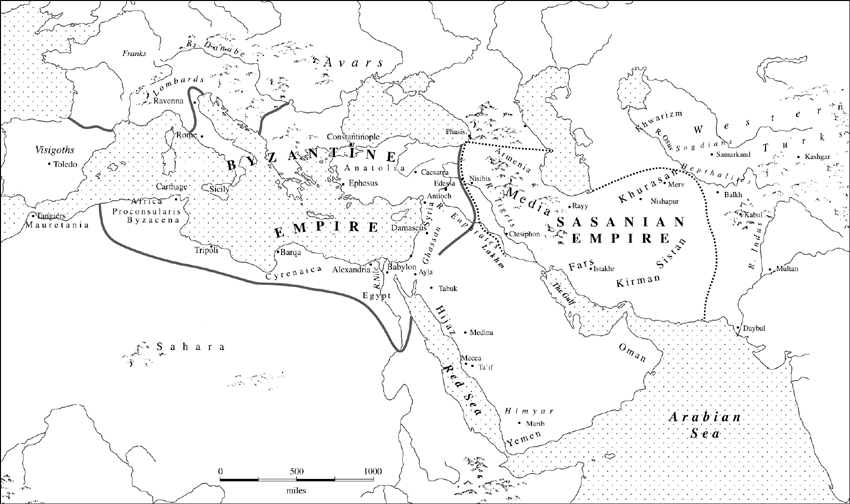
MAP 1 The World on the Eve of the Arab Conquests.
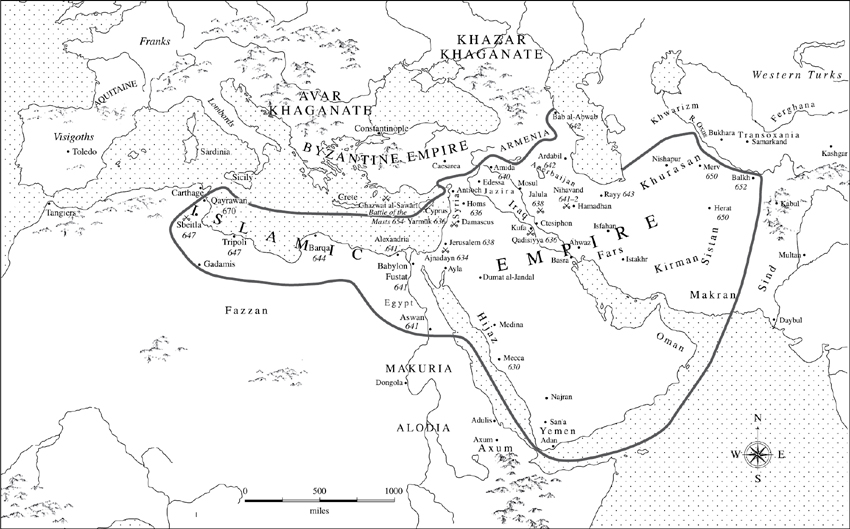
MAP 2 The Arab Empire in AD 685 (with approximate dates of major campaigns).
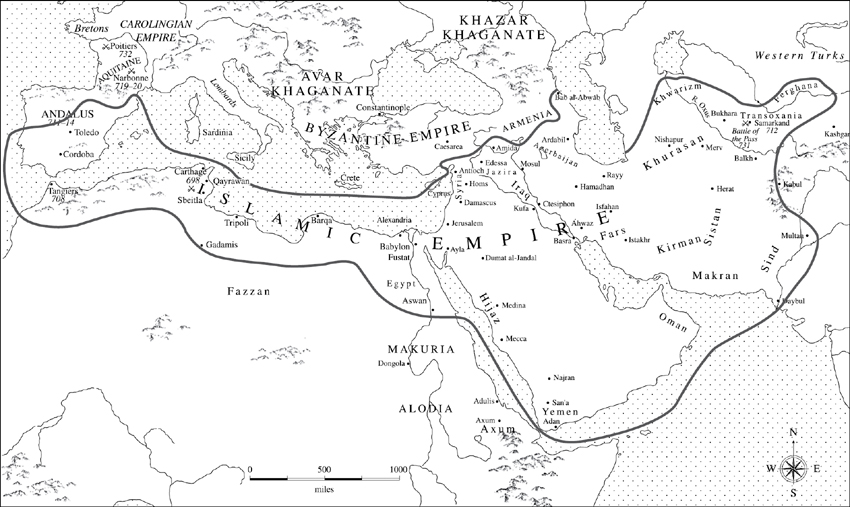
MAP 3 The Arab Empire in AD 750 (with approximate dates of major campaigns).
There is an old Middle East legend that tells of a band of Christian youths fleeing the persecution of a pagan Roman emperor in the mid-third century AD. They leave their native city behind and seek refuge in a cave, where they soon fall asleep. When they go out on what they assume to be the following day they are astonished to hear church bells ringing out across the streets below and to see crosses on all the high buildings. Unbeknown to them, God had spared them from witnessing the cruel ravages of heathenism by putting them to sleep for two centuries, and so the youths passed overnight from a pagan world to a Christian one.Arabs are everywhere victorious; non-Arabs everywhere submit, convert, or are killed; and Islamic government is everywhere imposedor at least this is the picture that ninth-century Muslim historians painted and it is one that has been widely accepted ever since.
The problem with this narrative is not so much that it is wrong, but that, like all histories told from the standpoint of the victors, it is idealizing and one-sided: the role of God and Islam is played up and the role of non-Muslims is mostly ignored. It is the aim of this book to try to give a more rounded account of this undeniably world-changing phenomenon. The main strategy for achieving this is a simple one: I will give precedence to seventh- and eighth-century texts and documents over later ones. Our earliest extant Muslim sources date from the ninth century, and even though their authors were using earlier materials, they inevitably shaped them in the light of their own world. This is of course always so, but the problem is magnified in this case because the political and religious landscape of the ninth-century Middle East was so dramatically different from that of the seventh century. It may seem very odd to an outsider to this field why this strategy of privileging earlier sources over later ones would not have been used beforeis it not just standard practice for modern historians? The problem is that the early sources are overwhelmingly of Christian provenance and in languages other than Arabic, and so they fall outside the usual purview of Islamic historiansand it is also assumed that they will be either prejudiced or ill-informed. Christian authors inevitably had their own preconceptions and biases, but the Arab conquests did affect them concretely and directly, and so there is very good reason to refer to their works to write about this subject. Moreover, those living in the decades shortly after the conquests still understood the late antique world in which these events had occurred and so can help us to understand what these events meant in their own time as opposed to what they meant to the inhabitants of the ninth-century Islamic world. But I do not want simply to champion non-Muslim sources over Muslim sources; indeed, it is my argument that the division is a false one. Muslims and non-Muslims inhabited the same world, interacted with one another, and even read one anothers writings. In this book, the distinction I make is simply between earlier and later sources, and I favor the former over the latter irrespective of the religious affiliation of their authors.

